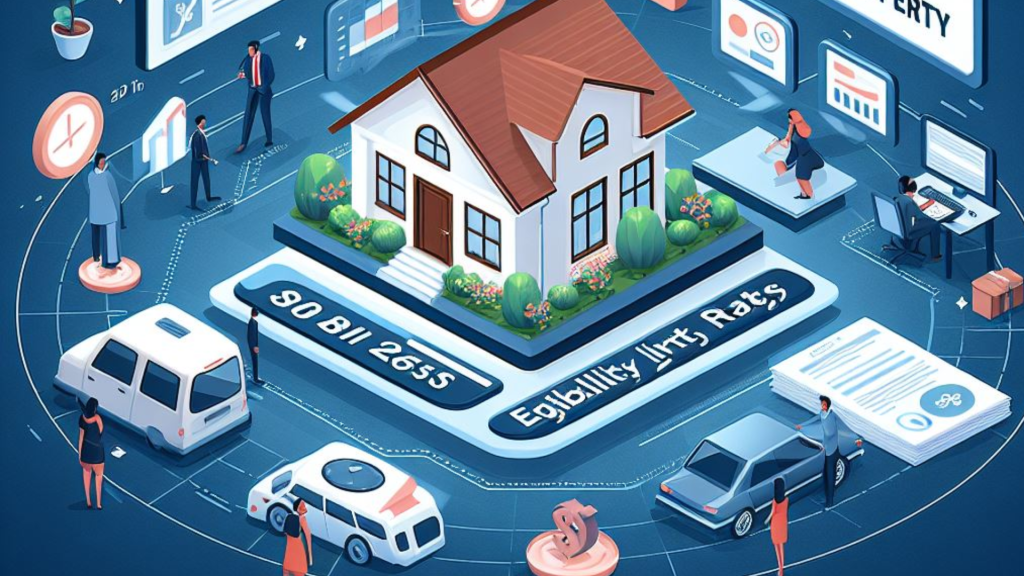SBI Loan Against Property 2023: A Holistic Approach to Nation-Building State Bank of India (SBI) is not just a banking institution; it’s a force committed to comprehensive nation-building. Since 1973, SBI has actively engaged in non-profit endeavors through Community Services Banking. SBI Property Loan Eligibility Every SBI branch and administrative office across the country participates in numerous welfare activities and social causes, embodying the belief that SBI’s business extends beyond banking, profoundly impacting lives in various ways.
SBI’s loan against property, a financial offering aligned with its societal commitment, ranges from Rs. 25 lakhs to over Rs. 1 crore, subject to specific conditions. Borrowers benefit from flexible repayment periods, spanning from 5 to 10 years. What sets these loans apart is the commitment to transparency, ensuring borrowers face no hidden charges throughout the loan tenure. SBI’s approach to lending is not just financial; it’s a testament to its dedication to the holistic development of the nation.
इस पोस्ट में क्या है ?
- 1 SBI Property Loan Insights
- 1.1 Types of Loans Offered by State Bank of India
- 1.2 1. Loan against Mortgage of Immovable Property
- 1.3 2. Loan against Mortgage (LAM) of Immovable Property
- 1.4 3. General Loan against Property
- 1.5 Eligibility Criteria for SBI Loan against Property
- 1.6 Loan against Property Interest Rates for SBI
- 1.7 FAQ
SBI Property Loan Insights
| Details | Specifications |
|---|---|
| Interest rates | 9.45% – 11.00% |
| Processing fees | 2.00% or Rs.50,000/- Maximum |
| Prepayment charges | Nil |
| Repayment options | Up to 10 years |
| Maximum loan amount | Rs.1 Crore |
| Loan Margin | 60% |
| Minimum Income | Rs.12,000 per month |
Types of Loans Offered by State Bank of India
State Bank of India provides a diverse range of loans under the umbrella of loans against properties, each tailored to specific needs and criteria. The loans vary from general loans against properties to those with specific eligibility and features.
1. Loan against Mortgage of Immovable Property
This loan is available to property owners in cities requiring urgent funds. Key features include:
- Loan amounts depend on the city’s classification.
- Tier I and II cities have a maximum limit of Rs. 2 crore, while other cities have a limit of Rs. 1 crore.
- Minimum borrowing amount is Rs. 25,000, with a maximum of Rs. 50 lakhs for certain states.
- The margin for this loan is 40% of the property’s market value.
- Repayment period can extend up to 120 months.
- No prepayment charges; maximum processing fee is Rs. 50,933.
2. Loan against Mortgage (LAM) of Immovable Property
The borrowing range for this loan is Rs. 25,000 to Rs. 2 crore, varying based on the city.
3. General Loan against Property
For general loans against property, the borrowing amounts range from Rs. 25,000 to Rs. 1 crore, based on specific criteria.

Eligibility Criteria for SBI Loan against Property
- Individuals in the agricultural sector, salaried, or self-employed can apply.
- Applicants must be under 60 years of age.
- For regular loans against property, the net monthly income should be at least Rs. 12,000 for salaried and Rs. 1.5 lakhs per annum for self-employed.
- Rent Plus loan is available for those renting properties to banks, MNCs, or large companies.
- For loan against mortgage of immovable properties, salaried applicants need a net monthly income of Rs. 25,000, and self-employed applicants need a net annual income of over Rs. 3 lakhs.
Loan against Property Interest Rates for SBI
Interest rates are calculated by adding an additional amount to the base rate. The current base rate for SBI is 9.7% per annum. For loan against mortgage of immovable property, the interest rates range from 60% to 85% per annum. For general loans against property, the interest rate is the base rate plus 2.50% above the floating base rate.
Interest is applied on a daily or monthly reducing balance basis, and rates are subject to change.
FAQ
Customers can repay the loan through ECS or post-dated cheques, with a repayment period ranging from monthly to years.
Loans range from Rs. 5 lakh to Rs. 5 crore based on the property’s assessed value.
Self-occupied residential, commercial, and various alternate properties, including schools, hospitals, industrial properties, can be used as collateral for availing a loan against property.